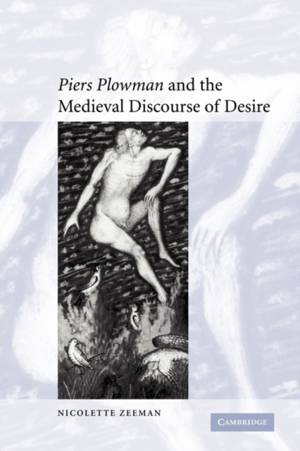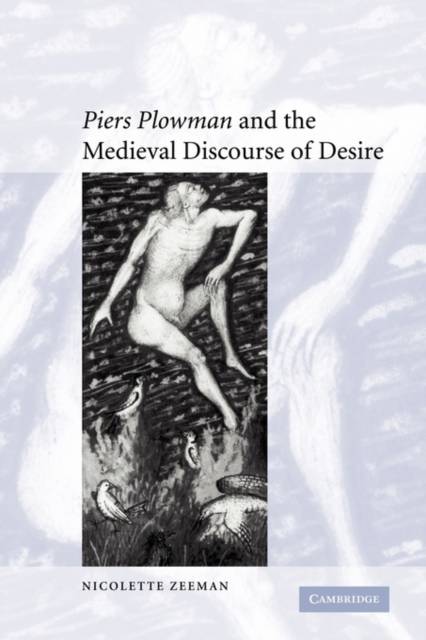
Je cadeautjes zeker op tijd in huis hebben voor de feestdagen? Kom langs in onze winkels en vind het perfecte geschenk!
- Afhalen na 1 uur in een winkel met voorraad
- Gratis thuislevering in België vanaf € 30
- Ruim aanbod met 7 miljoen producten
Je cadeautjes zeker op tijd in huis hebben voor de feestdagen? Kom langs in onze winkels en vind het perfecte geschenk!
- Afhalen na 1 uur in een winkel met voorraad
- Gratis thuislevering in België vanaf € 30
- Ruim aanbod met 7 miljoen producten
Zoeken
'Piers Plowman' and the Medieval Discourse of Desire
Nicolette Zeeman
€ 70,95
+ 141 punten
Uitvoering
Omschrijving
This ambitious work links William Langland's great poem Piers Plowman to wider medieval enquiries into the nature of intellectual and spiritual desire. Nicolette Zeeman traces the history of psychology and its iconography in medieval devotional and theological literature, stretching back to St Augustine and Gregory the Great, and shows how an understanding of these traditions opens up a fresh reading of Piers Plowman. She challenges the consensus according to which the poem narrates an essentially positive 'education' of the will, and reveals instead a narrative of desire emerging from rebuke, loss and denial. This radical reading revolutionises our thinking about Piers Plowman, and sheds light on the history of medieval psychology, devotion, pastoral care, medieval textual theory and literary history.
Specificaties
Betrokkenen
- Auteur(s):
- Uitgeverij:
Inhoud
- Aantal bladzijden:
- 328
- Taal:
- Engels
- Reeks:
- Reeksnummer:
- nr. 59
Eigenschappen
- Productcode (EAN):
- 9780521122986
- Verschijningsdatum:
- 12/11/2009
- Uitvoering:
- Paperback
- Formaat:
- Trade paperback (VS)
- Afmetingen:
- 152 mm x 229 mm
- Gewicht:
- 480 g

Alleen bij Standaard Boekhandel
+ 141 punten op je klantenkaart van Standaard Boekhandel
Beoordelingen
We publiceren alleen reviews die voldoen aan de voorwaarden voor reviews. Bekijk onze voorwaarden voor reviews.









